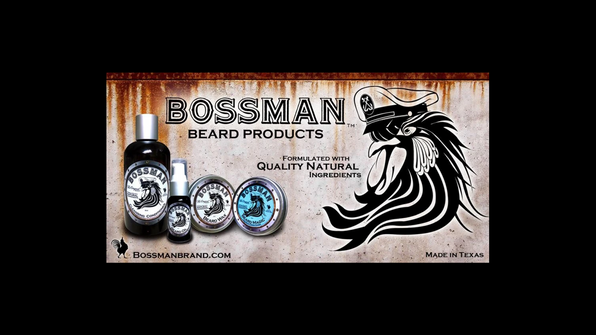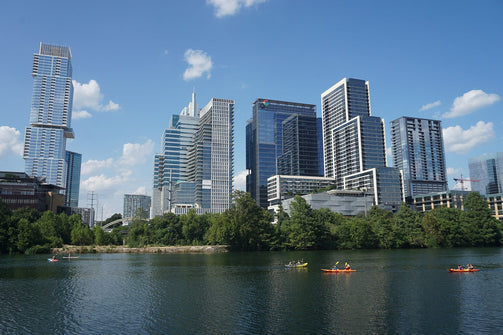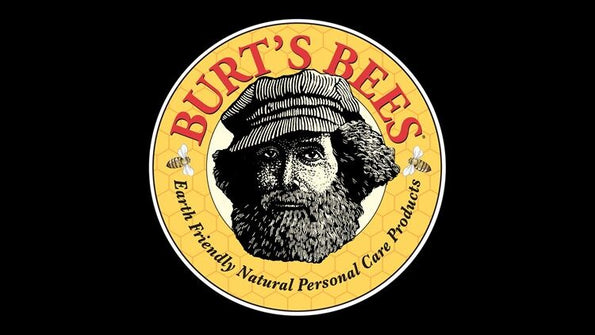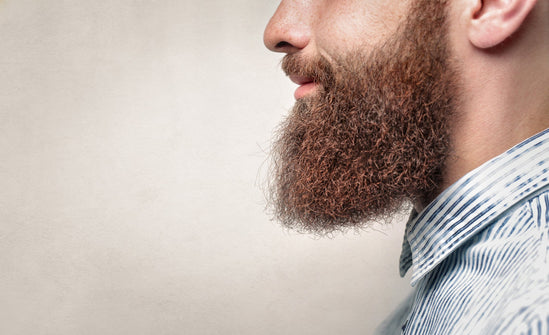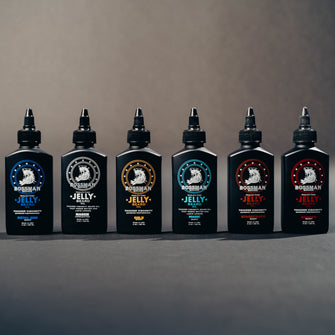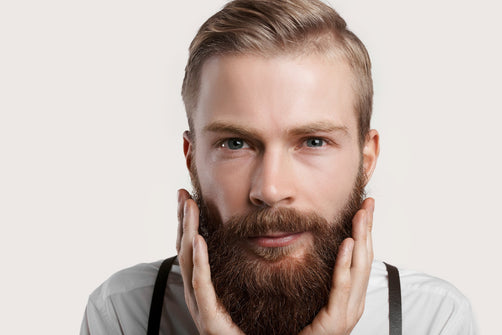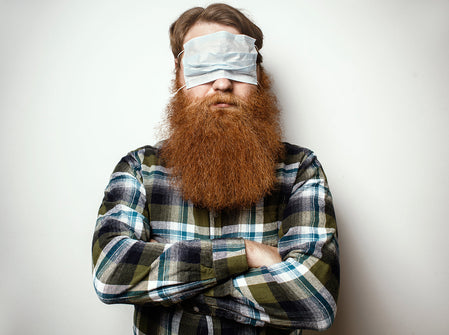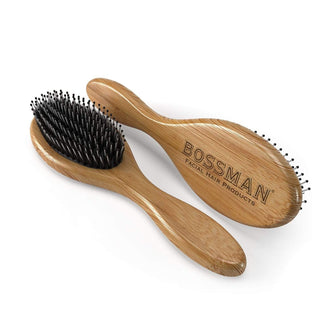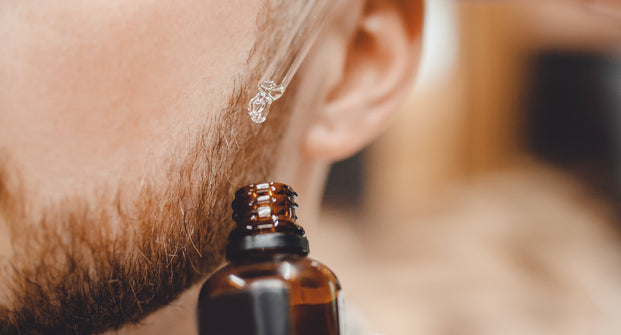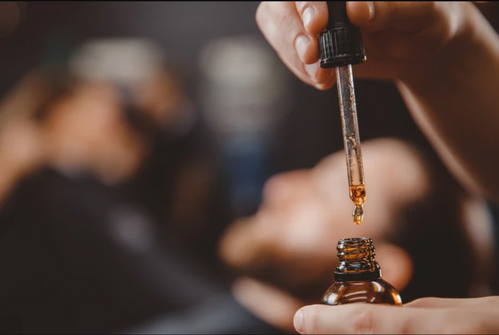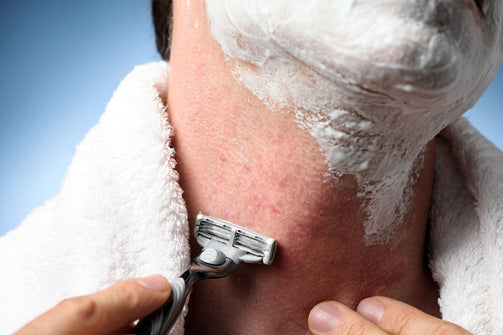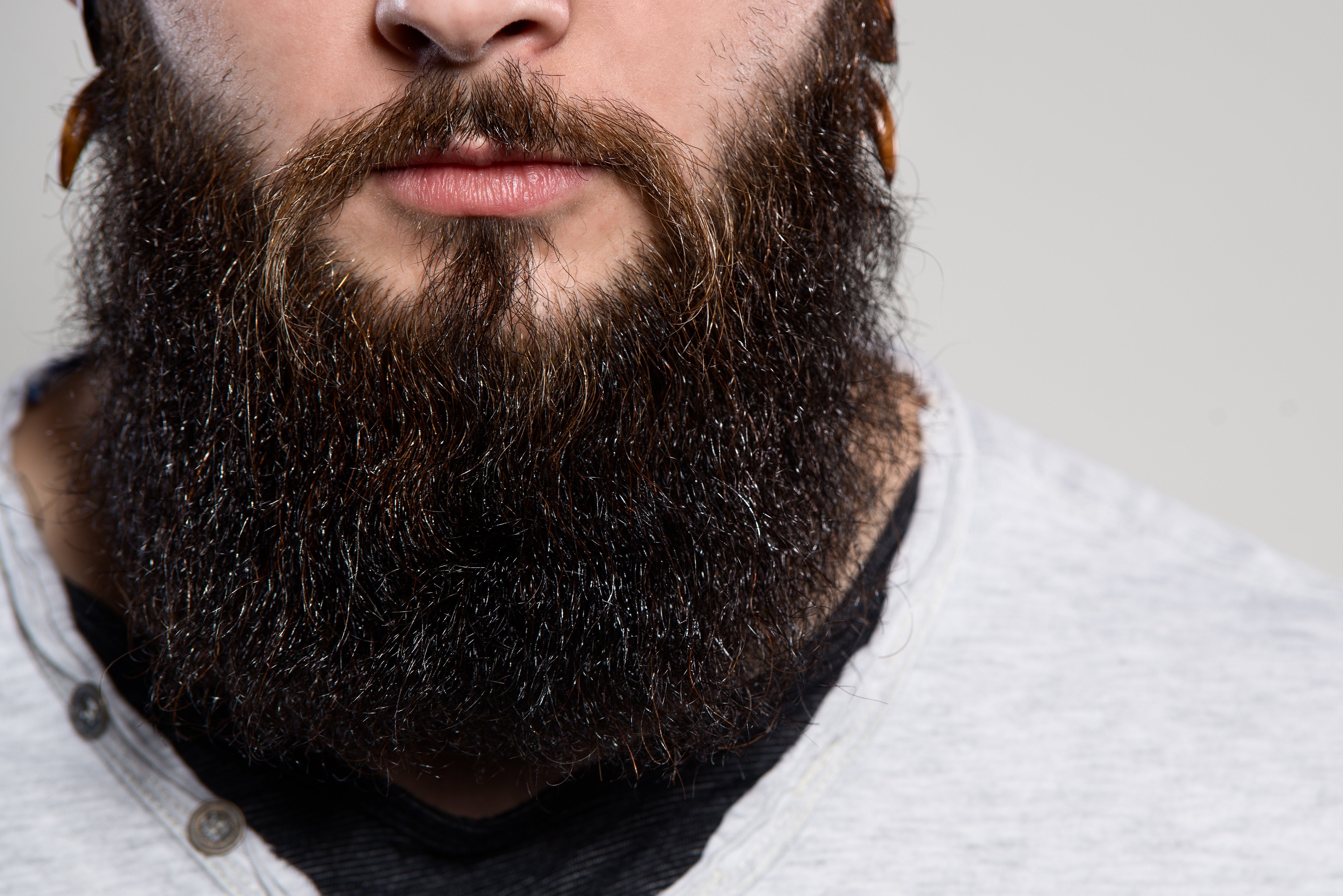Growing facial hair is an intricate process, deeply interwoven with our genetic framework, hormones, and overall well-being. It is considered a milestone for numerous men, and delving into the science behind this process adds a layer of intrigue to the experience. Facial hair often serves as a symbol of identity, masculinity, and a testament to patience and diligence for many individuals.
The rate and pattern of beard growth in men have attracted scientific curiosity and grooming enthusiasts' attention. According to a medically reviewed study published in Healthline Media, your genetic make-up primarily determines the speed of your facial hair growth. Yet, other elements such as overall health, dietary habits, and lifestyle choices also contribute significantly.
This essential guide focuses on some of the things you should avoid doing when growing out your beard. We’ll break down some of the more important things you need to know—whether you’re a first-timer or an expert beardsman.
How to Grow a Beard

- 1. Begin by setting a goal for how long you want your beard to be.
- 2.Manage itchiness by applying beard oil or relaxing balm when your beard growth is underway.
- 3. It may take up to 30 days or more for your beard to fill in, so be patient.
- 4. Improve your beard growth by getting adequate sleep, exercising often, and eating the right stuff.
- 5. After the initial 30 days, trim your neckline just above your throat.
- 6. Use our barber scissors to trim stray hairs.
- 7.Don't make any radical decisions about your beard.
- 8. When in doubt, ask Bossman.
Some of the Things That May Impact Your Ability to Grow a Beard
Genetics
The kind of beard you'll have is explicitly bound to your genes. It’s the single most significant determinant for why your beard behaves the way it does. While you may not have the same beard as your father or grandfather, the genes that define your beard’s coarseness, color, and final length come from your ancestors.
Age
It's no secret that age plays an integral part in determining the rate at which your beard grows. Boys begin to develop facial hair around age 13, but typically, the fastest, consistent hair growth happens between the ages of 25 and 35.
Testosterone
Men with higher levels of testosterone have a better chance of growing overflowing facial hair. However, the flip side is that these men are often more likely to go bald because of dihydrotestosterone. Now you have your answer as to why so many bald men have such long beards.
Exercise
Exercising helps to boost testosterone levels. Intense, practical movements that work multiple muscle groups are the most useful. Pushups, pull-ups, squats, deadlifts, rows, and chest and overhead presses are all great exercises that can help your beard grow faster.
Diet
A well-balanced diet full of vitamins, protein, and minerals helps nurture your beard while allowing it to maximize its growth potential. Hair follicles consist of protein, so ensuring you get enough in your diet is necessary to grow your beard. A lack of protein can cause the beard strands to become weak. B, C, and D vitamins, as well as iron and zinc, also play a huge role in keeping your beard healthy and growing abundantly.
Related: How Does Diet Impact Beard Growth?
Sleep
Getting adequate sleep every night enhances the quality of your beard, as well as its growth rate. The body’s temperature drops during sleep, which increases blood circulation, including the flow to hair follicles and their roots. The more nutrient-rich blood that reaches the hair follicle and the roots, the faster your beard grows.
Stress
How many times have you heard people joke about stress causing their hair to fall out? Stress can, indeed, affect the growth rate of your beard as well as your scalp hair because it undermines the immune system—and an impaired immune system means less growth.
Smoking
The health risks of smoking tobacco are real, but one risk you may not have caught is that smoking may lead to hair loss—beard and scalp. Think of it as another great reason to put down the cigarettes for good.
Skin Condition
The condition of your skin is fundamental to the health of your beard. Good skincare practices can alleviate common issues such as dryness and flaking, which can hinder the growth and appearance of your beard. Bossman's Mudstache Wax not only styles your facial hair but also nourishes the skin beneath.
Different skin types react differently to beard growth, with men having sensitive skin experiencing more skin conditions such as irritation or razor bumps. It's crucial to select grooming products like Bossman's that cater to your skin type and address your particular concerns.
Regular Trimming
Trimming regularly is another crucial aspect of beard care that enhances growth and maintains the beard's shape. Regular trims remove split ends and promote healthier growth. Bossman Brand’s Beard Scissors, with precision and sharpness, make this task easy and efficient.
Top Things Not to Do When Growing a Beard
There are lots of things you should avoid when growing a beard. Let's break down some of the most common.
Do Not Shave With the Intent to Make It Grow Back Faster.
When growing out your beard, be patient. All shaving does is get rid of all the progress you have made. There is no scientific proof that validates shaving makes hair grow back faster. Only time and proper care do that.
Do Not Rely Solely on Beard Growth Serums
If you are in the process of growing out your beard, do not fall victim to beard growth oils and pills as these are not backed by science. However, there are vitamins such as biotin that may help improve the health of your hair.
Do Not Shave Your Beards During Warm Weather
Beards help hinder UV rays and wick away sweat, generating a cool airflow.
Beards Itch But Do Not Get Rid of It
It is common for beards to itch during the initial stages of growth, but this will go away quickly. In general, beards are not itchy; the itchiness is more indicative of a grooming issue.
Beards Are Dirty But Do Not Shave It Off
You may have heard about beards carrying trace amounts of fecal material. Well, practically everything contains trace amounts of fecal material. Use a beard soap and conditioner to keep your beard neat and healthy.
Eating for Facial Hair Growth
Maintaining a healthy lifestyle can stimulate beard growth. Consuming a nutrient-rich diet that includes proteins, vitamins A, C, and E, and Biotin (also known as Vitamin B7), which promotes hair growth, can provide the essential nutrients your beard requires to grow robust and full. Regular physical activity enhances blood circulation, ensuring efficient delivery of nutrients to your hair follicles.

Your beard is a branch of yourself. The connection between your beard's health and your general health is an intimate one. These are some of the best foods you can add to your regime to promote optimal beard growth.
Sweet Potatoes
High in beta-carotene, sweet potatoes can help promote cell growth in your beard. Upon ingestion, beta-carotene is converted into vitamin A, leading to more cell growth within the hairs on your beard.
Oysters
Not many people eat oysters, but that does not make it a lesser source of zinc. Zinc is an essential mineral that supports the cells within the hairs. Moreover, oysters are a great source of protein.
Eggs
Rich in protein, eggs offer a serious boost for your beard growth. Eggs are a natural source of biotin, which is a well-known supplement that promotes beard growth and strength. Eggs also contain several minerals, such as calcium, iron, and zinc.
Spinach
Spinach is abundant in iron, calcium, protein, magnesium, and potassium, all major factors in having a healthy beard. You can enjoy it raw or sautéed. It even works well in smoothies if you are making green juice.
Cinnamon
Cinnamon stimulates the flow of oxygen to hair follicles. The best part? You don't need a whole lot of it. Toss it in your porridge, shakes, and other meals where sweetness is a plus.
Liver
Though not the tastiest food, the liver is a jam-packed protein, iron, and biotin source.
Biotin-Rich Foods
Adding biotin-rich foods such as almonds, peanuts, walnuts, soybeans, and other legumes to your diet can help boost your body’s keratin infrastructure, the element that makes up your hair, skin, and nails. Foods such as whole grains, bananas, cauliflower, and mushrooms are also excellent biotin sources.

Read more: Biotin and Beard Growth
Key Takeaway
In summary, understanding beard growth is not just about aesthetics, it's about maintaining a healthy lifestyle and skin condition. It's about making informed choices based on medically reviewed information and trusted reviews. And, importantly, it's about using the right beard care products, such as those from Bossman Brand, to nurture and maintain your beard. Growing a beard requires patience, the right genetics, and the right foods. It's science - if you provide the healthiest environment for growth, you will see a difference given the right amount of time.
Growing facial hair is both an art and a science, a fine balance between the forces of nature and nurture. It's a journey that many men embark on, discovering a lot about themselves along the way. By embracing this journey, the simple act of growing a beard can become a deeply personal and rewarding experience.
As the great Greek philosopher Epictetus once said, "Know, first, who you are, and then adorn yourself accordingly." This wisdom is just as applicable to modern men embarking on their beard growth journey. With a little patience, care, and the right tools from Bossman Brand, every man can proudly wear his beard as a true reflection of his unique self.

